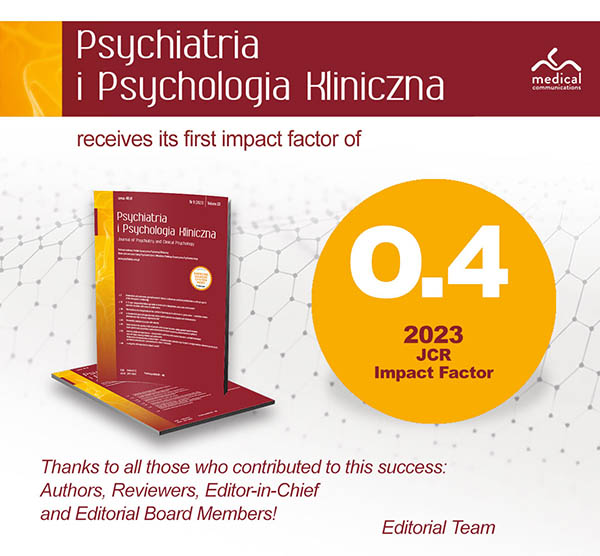Personality correlates of coping with stress by patients with malignant tumour, as compared to the control group
Jacek Konrad Olszewski, Piotr Szczukiewicz
 Affiliacja i adres do korespondencji
Affiliacja i adres do korespondencjiMentally strenuous experiences related to malignant tumour may cause adverse changes in the patient’s personality and inhibit her/his effective remedial activity. This study concerns the correlation between malignant tumour and such psychological variables as personality and coping with stress by patients after mastectomy, as compared to the control group. The research was conducted among 37 women after mastectomy and 24 healthy women. They were 42–76 years old. The NEO Five Factor Personality Inventory (NEO-FFI) and Coping Orientations to Problems Experienced – COPE were used in this study. The results indicate that there is a correlation between the basic personality traits and the ways of coping with stress by women who experienced mastectomy and by healthy women. Among women who suffered from malignant tumour the dispositional personality factors have a greater impact on choosing the ways of coping with stress, as compared to women from the control group. Experiences related to malignant tumour may – through personality – modify the ways of coping with difficulties. Some of the basic personality traits, such as neuroticism, may inhibit remedial adaptation, while extraversion, conscientiousness and agreeableness – support adaptation.















